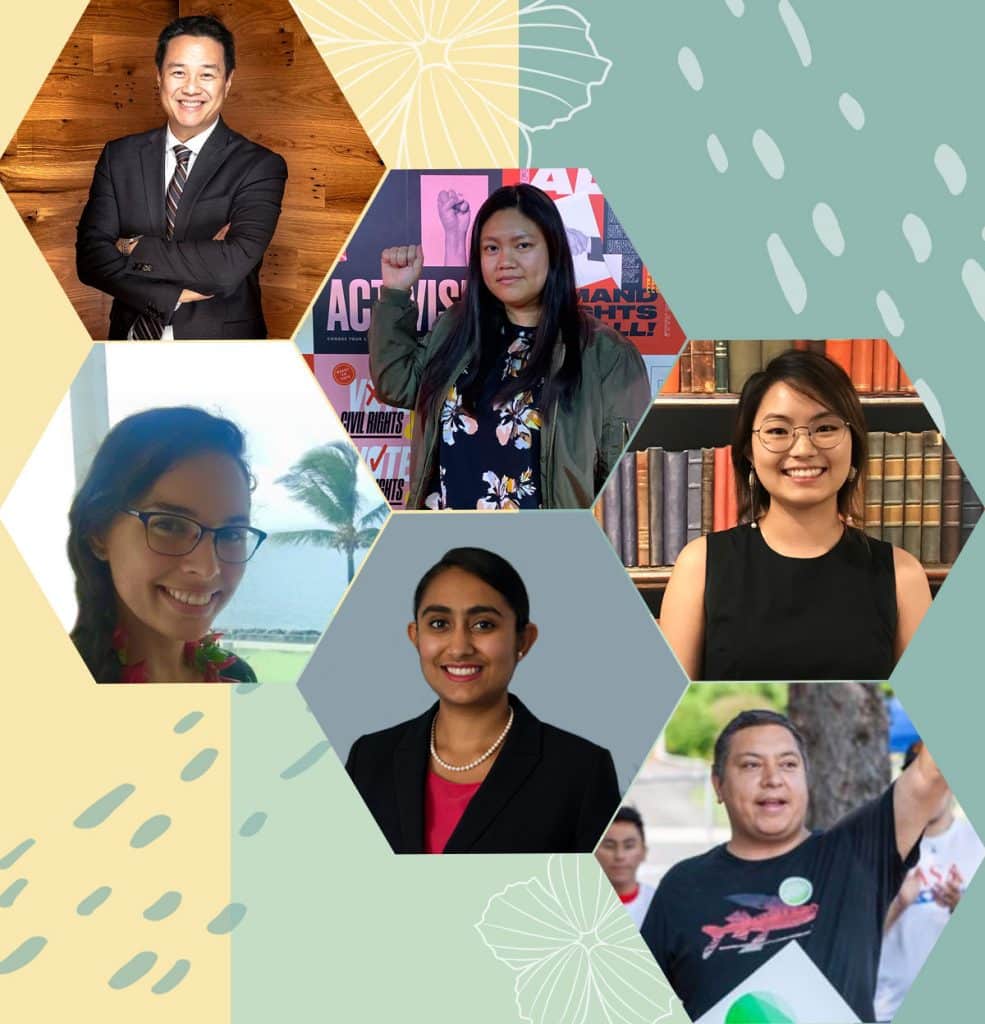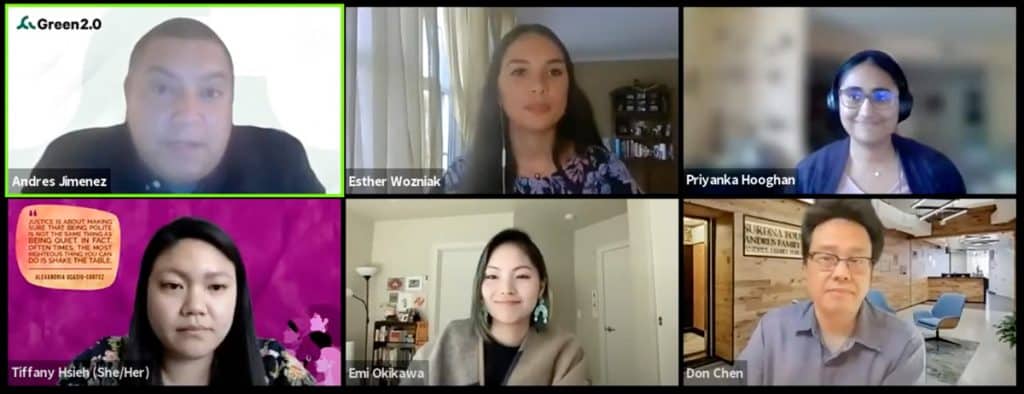BLOG / BLOG POST

Asian-American and Pacific Islander Leaders on the Future of The Environmental Movement
By Shao Zhi Zhong
Green 2.0 Digital Marketing Manager Shao Zhi Zhong recaps our May 19 event with AAPI leaders in the environmental sector.
Every year in May, Asian American and Pacific Islanders (AAPI) Heritage Month is a time to celebrate the generations of AAPIs who have enriched this country’s history. But with the surge of anti-Asian hate crimes and xenophobia across the country, for me as a Chinese American, this month, more than previous years, I’m also reminded of the struggles my community has faced for generations. Environmental injustice in AAPI communities is nothing new, but our voices have rarely been included in the environmental movement, which remains overwhelmingly White. Changes need to be made, and in our panel discussion hosted on May 19th, Asian-American and Pacific Islander Leaders on the Future of The Environmental Movement, AAPI leaders in the environmental sector shared their experiences in the movement and spoke out about changes that need to be made, because a more equitable movement must include AAPI voices.

From bottom left: Tiffany Hsieh, Emi Okikawa, and Don Chen
Moderated by Don Chen, President at Surdna Foundation, panelists included Priyanka Hooghan (House Committee on Science, Space, and Technology), Tiffany Hsieh (League of Conservation Voters), Emi Okikawa (Sierra Club), and Esther Wozniak (The Pew Charitable Trusts), with opening remarks from Andres Jimenez, Green 2.0’s Executive Director.
Don’s first question to the panelists was how did being an AAPI affect them, and Tiffany shared her experience by discussing “the pressures of the model minority myth,” which resonated with me. AAPI history is rarely covered in secondary education in this country. Because of this, there’s a perception that we are quiet, preferring to stay in the background, but as Tiffany shared, “discovering AAPI are and have always been fighting for civil rights and environmental justice…that empowered me.” For many young AAPIs, that discovery is often self-initiated.
AAPI in the [United States] have generally been pretty much in the background…we are not regarded as an important constituency…the time for that must stop.
– DON CHEN, PRESIDENT AT SURDNA FOUNDATION
Throughout the discussion, panelists shared valuable insights, especially for future leaders in the movement. Emi Okikawa acknowledged the importance of internships, fellowships, and building relationships, but urged that once you have your community of supporters, branch the support out to other BIPOC folks “because solidarity is so important.” Panelists also discussed changes philanthropic foundations can do to better support AAPI communities. Esther suggested changing how success is measured. “They can help change the metrics of success. Include some flexibility in the way [communities] work so that you can meet people where they are at instead of forcing a grant.” She also discussed the importance of authentic engagement with communities and not just “midway through the project to check that box, but to actually work with them… and implement it.” Young leaders are the future of the movement, and with the right support from foundations, many goals can be accomplished, but success can’t and shouldn’t be achieved alone in an organization. “Just because you’re the one person of color in the office does not mean you should do all of the work related to diversity and inclusion issues, because it impacts more than just that particular person. It really impacts everyone,” said Priyanka.
One of the most powerful movements of the panel is when Don said,. “AAPI in the [United States] have generally been pretty much in the background…we are not regarded as an important constituency…the time for that must stop.” Growing up in the Chinatown neighborhood of Philadelphia, I know how true that statement of being regarded as an unimportant constituency is. The city leveled a sizable portion of my neighborhood to build an expressway and it was willing to do that at the cost of demolishing the only school in the neighborhood. The city also tried to build a federal prison and a baseball stadium, and even though the city failed, it eventually built a convention center. The truth hurts, but Don’s latter part of his statement also gives me hope. “We need to claim power, we need to recognize that we have not only a seat at the table, but a role in decision-making, and that theme of claiming power is what I see in a lot of conversations among AAPI leaders today.”
To learn more about our panelists:
Follow Don Chen on Twitter @donchennyc. To learn more about Surdna Foundation, visit surdna.org and follow on Twitter @surdna.
Follow Priyanka Hooghan on Twitter @priyankahooghan. To learn more about House Committee on Science, Space, and Technology, visit science.house.gov and follow on Twitter @HouseScience.
Follow Tiffany Hsieh on Twitter @thatshaycrayy. To learn more about League of Conservation Voters, visit lcv.org and follow on Twitter @LCVoters.
Follow Emi Okikawa on Twitter @EmiOkikawa. To learn more about Sierra Club Washington State, visit sierraclub.org/washington and follow on Twitter @SierraClubWASt.
To learn more about Esther Wozniak’s work, visit The Pew Charitable Trusts.
